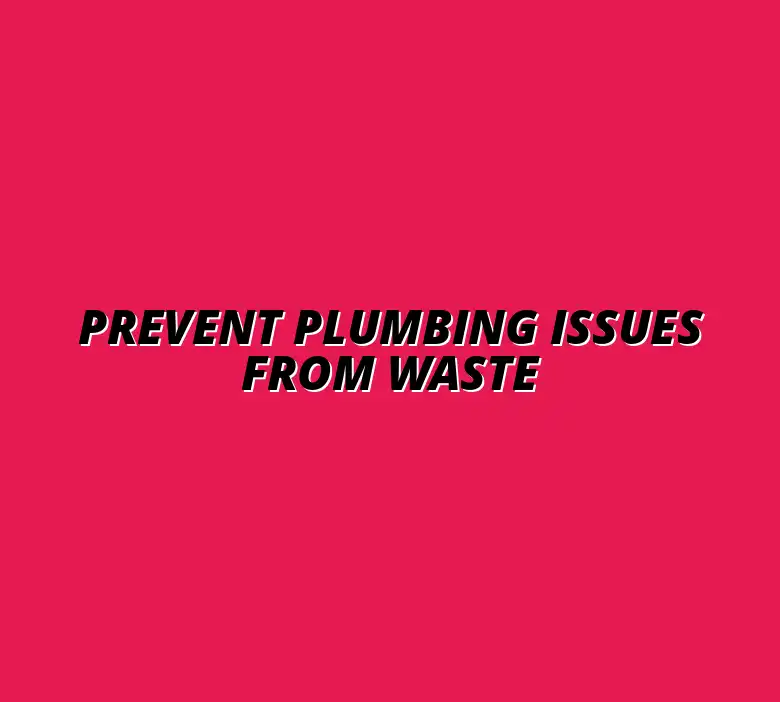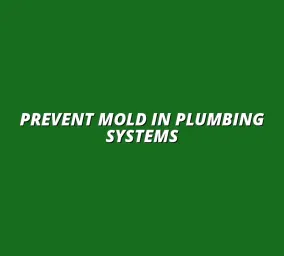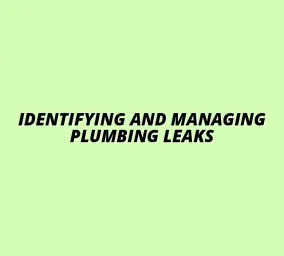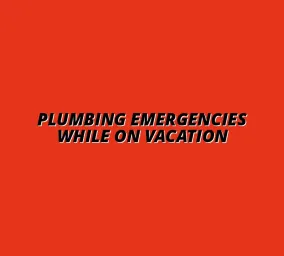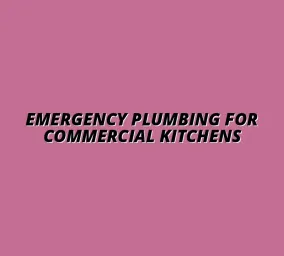Prevent Plumbing Issues from Waste
Understanding the Impact of Improper Waste Disposal on Plumbing Systems
Improper waste disposal can wreak havoc on our plumbing systems. When we don't dispose of waste correctly, it doesn't just create a mess — it can lead to serious plumbing issues that can be costly to fix. Understanding this connection is crucial for maintaining the health of our plumbing and the overall hygiene of our home.
Many people may not realize that waste disposal habits significantly affect plumbing systems. For example, flushing inappropriate items down the toilet or pouring grease down the drain can lead to significant problems. It's important to be aware of how our choices can cause clogs, backups, and even more significant plumbing failures. To prevent plumbing clogs with better habits, check out these helpful tips from our experts: prevent plumbing clogs with habits.
The Connection Between Waste Disposal and Plumbing Issues
When we talk about waste disposal, it's essential to recognize how it connects to plumbing issues. The waste materials we throw away or flush have a direct impact on the pipes and systems designed to carry that waste away. Over time, improper disposal leads to buildup that can clog pipes and create a host of plumbing headaches.
Specifically, organic waste, like food scraps, can decompose and create sludge that clogs drains, while non-biodegradable materials can block pipes entirely. Understanding this connection helps us prevent many common plumbing problems and keep our systems running smoothly!
How Waste Buildup Leads to Clogs
Waste buildup occurs when materials accumulate in pipes, restricting the flow of water. Over time, this buildup can turn into serious clogs. Here’s how it typically happens:
- Grease and Oil: When poured down the drain, they solidify and stick to the pipe walls.
- Food Particles: Small bits of food can accumulate and contribute to blockages.
- Hair and Soap Residue: These substances can clump together in drains, creating blockages.
Regular maintenance and mindful waste disposal can prevent this buildup. If left unchecked, it can lead to frequent clogs and even require expensive plumbing repairs!
Common Plumbing Problems Linked to Improper Disposal
Improper waste disposal can lead to a range of plumbing problems. Some of the most common issues include:
- Clogged Drains: Regularly flushing inappropriate items can easily result in clogs. Learn how to prevent bathroom drain clogging year-round here.
- Backed-Up Toilets: Flushing items that don’t break down can cause toilets to overflow.
- Foul Odors: Decaying waste in pipes can lead to unpleasant smells in your home.
By understanding these problems, we can take steps to avoid them. Being mindful of what goes down our drains makes a big difference in maintaining healthy plumbing!
Identifying Common Waste Disposal Mistakes
Many of us are guilty of making mistakes when it comes to waste disposal. Identifying these common errors is the first step toward improving our plumbing health. When we recognize what not to do, we can prevent plumbing problems before they arise.
It's important to understand the types of waste we commonly dispose of in our homes. Knowing which items harm plumbing systems can help us make better decisions and educate others in our households.
Household Waste Types That Harm Plumbing
Certain types of household waste can be especially harmful to plumbing systems. Here are some of the most common culprits:
- Food Waste: Scraps should never go down the drain unless they are compostable. Learn more about the benefits of installing a garbage disposal here.
- Plastic and Non-Biodegradable Items: Items like plastic wrappers can clog pipes.
- Feminine Hygiene Products: These should always be disposed of in the trash, not flushed.
By being aware of these waste types, we can take proactive steps to ensure our plumbing remains problem-free!
Food Waste and Garbage Disposal Misuse
Using garbage disposals can be helpful, but they aren't a catch-all solution for food waste. Misuse can lead to clogs and other plumbing issues. Here are some best practices for using your garbage disposal:
- Only Use Small Amounts: Large amounts of food waste can overwhelm the disposal.
- Avoid Hard Foods: Bones and hard vegetable peels can damage the blades.
- Run Water: Always run water while using the disposal to help flush waste down.
Proper use of garbage disposals ensures that they help, rather than harm, your plumbing. Simple changes can make a big difference!
Non-Biodegradable Materials and Their Effects
Throwing away non-biodegradable materials, like plastic, can have a detrimental impact on plumbing systems. These items do not break down and can cause blockages that lead to serious plumbing issues. Here are some common non-biodegradable materials to avoid:
- Plastic Bags: They can easily get stuck in pipes.
- Styrofoam: This doesn't decompose and can accumulate over time.
- Wet Wipes: Often marketed as flushable, they can cause severe clogs.
Proper disposal of these materials is key to maintaining a healthy plumbing system. Being aware of these items can help prevent costly repairs!
Addressing Common Questions About Waste Disposal and Plumbing
Many homeowners have questions about how waste disposal practices can affect their plumbing systems. Understanding these common queries is essential for maintaining a healthy plumbing environment. Let’s dive into some of the most frequently asked questions and provide clear answers!
What Are the Most Common Causes of Plumbing Clogs?
Plumbing clogs can be a major headache for homeowners. They usually occur when materials build up in the pipes, leading to blockages. Some of the most common causes of clogs include hair, soap scum, food particles, and non-flushable items.
Insights into Material Blockages
To help you understand what materials can lead to clogs, here's a quick list of common culprits:
- Hair - Often gets trapped in drains, especially in bathrooms.
- Grease - Can solidify in pipes, creating tough blockages.
- Food scraps - Many people don’t realize some items aren't suitable for disposals.
- Non-flushable items - Items like wet wipes and cotton balls can cause significant issues.
To prevent these blockages, it's crucial to be mindful of what goes down your drains. Regular maintenance can save you from costly plumbing repairs!
Prevention Tips for Clogged Drains
Keeping your plumbing free from clogs requires some proactive measures. Here are a few helpful tips to ensure your drains stay clear:
- Always use drain catchers to catch hair and debris.
- Avoid pouring grease down the sink; instead, dispose of it in the trash.
- Only flush toilet paper and human waste—nothing else!
- Run hot water through your disposals after use to help break down food particles.
Following these steps can significantly reduce the chances of clogs and keep your plumbing in good condition.
How Can Homeowners Educate Themselves on Waste Disposal?
Education is key when it comes to proper waste disposal. Homeowners can benefit from learning about best practices to protect their plumbing systems. Luckily, there are plenty of resources available to help you!
Resources for Learning Proper Disposal Methods
Here are some great resources for homeowners looking to improve their waste disposal knowledge:
- Local government websites - Often provide guidelines on waste disposal.
- Environmental agencies - Offer tips on eco-friendly disposal practices.
- Plumbing blogs and forums - Share insights from professionals and DIY enthusiasts.
By utilizing these resources, you can gain a better understanding of how your waste disposal habits impact your plumbing and the environment. For urgent plumbing emergencies, knowing the warning signs can save you time and money. Learn more here.
Community Programs and Workshops
Many communities offer programs and workshops focused on waste management. Participating in these initiatives can greatly enhance your understanding of proper disposal methods. Look for:
- Neighborhood clean-up events
- Plumbing maintenance workshops
- Recycling programs that educate about waste separation
Engaging with your community not only helps you learn but can also foster a sense of responsibility towards waste disposal.
Summarizing Key Takeaways for Effective Waste Management
By now, you should have a better grasp of how waste disposal affects plumbing systems. Let’s summarize some essential practices to ensure your plumbing remains in good shape!
Reviewing Essential Practices for Plumbing Care
Maintaining your plumbing requires consistent effort. Here are some daily habits you can cultivate to enhance plumbing health:
- Dispose of food waste properly and avoid using the garbage disposal for anything other than small food scraps.
- Check your drains regularly for signs of buildup.
- Educate family members about what can and cannot go down the toilet.
These simple habits can lead to significant improvements in your plumbing's longevity! Preventing water heater leaks is another important aspect of plumbing maintenance. Find out how here.
Encouraging a Culture of Responsible Waste Disposal
Creating a responsible waste disposal culture at home starts with open communication. Talk to your family about why these practices matter and how they can contribute. Here’s how you can foster this culture:
- Post reminders around the house about proper disposal.
- Hold family discussions about the importance of waste management.
- Involve everyone in recycling and disposal activities.
When everyone participates, it creates a more sustainable household environment!
Final Thoughts on Maintaining Plumbing Systems
In conclusion, maintaining plumbing systems is all about being proactive. By understanding waste disposal and its impact, you can avoid clogs and costly repairs. If you need a plumber in Tyseley, Birmingham, we're here to help: Plumber in Tyseley, Birmingham.
The Importance of Proactive Measures in Home Maintenance
Regular maintenance and education are vital for a smooth-running plumbing system. Recognizing potential problems before they escalate can save you time, money, and stress. Make it a point to check your plumbing regularly! And remember, preventing plumbing issues with water softeners is another key step in proactive home maintenance. Learn more here.
Call to Action: Start Implementing Changes Today
Don't wait for a plumbing disaster to take action! Start implementing these waste disposal practices today to keep your plumbing healthy. Together, we can make a difference!

